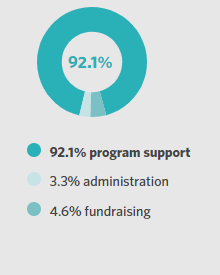The need for a cooperative legal structure arose independently in Unbound projects in the early 2000s, beginning in Kenya, El Salvador and the Philippines. Cooperatives are autonomous organizations separate from the Unbound project affiliates, but Unbound project staff have typically facilitated the creation of cooperatives among sponsored families, providing training or connecting families with the government ministries that govern and support cooperatives.
Generally, the number of members per cooperative is the criteria used to measure success; however, Dan Pearson, Unbound’s director of international programs, said the size and structure of the cooperative depends on the advantages and disadvantages afforded by each of the legal options available in a country. In Honduras, of 130 credit cooperatives formed by parent groups, there are only about 50 members per cooperative, whereas three of the largest and most successful credit cooperatives in Kenya (called SACCOs), are thousands of members strong.
Though cooperative details and member counts vary by location, each Unbound supported cooperative in existence today has one strong common denominator.
Each cooperative was largely formed and now managed by the mothers of Unbound parent support groups. Empowered by the success of their cooperatives, members live the common cooperative values of solidarity and social responsibility by sharing their collective wisdom with neighboring program mothers groups on the cusp of forming their own cooperatives, unifying across borders to challenge poverty.
And such was the case with the first credit cooperative to open its doors in the Quezon program in Metro-Manila, Yapak CC.
Built on Unity, Part 3
Philippines’ Yapak Credit Cooperative: A lesson in how individuals in poverty can hold the keys to transforming their own communities
June 01, 2022 | Be Informed
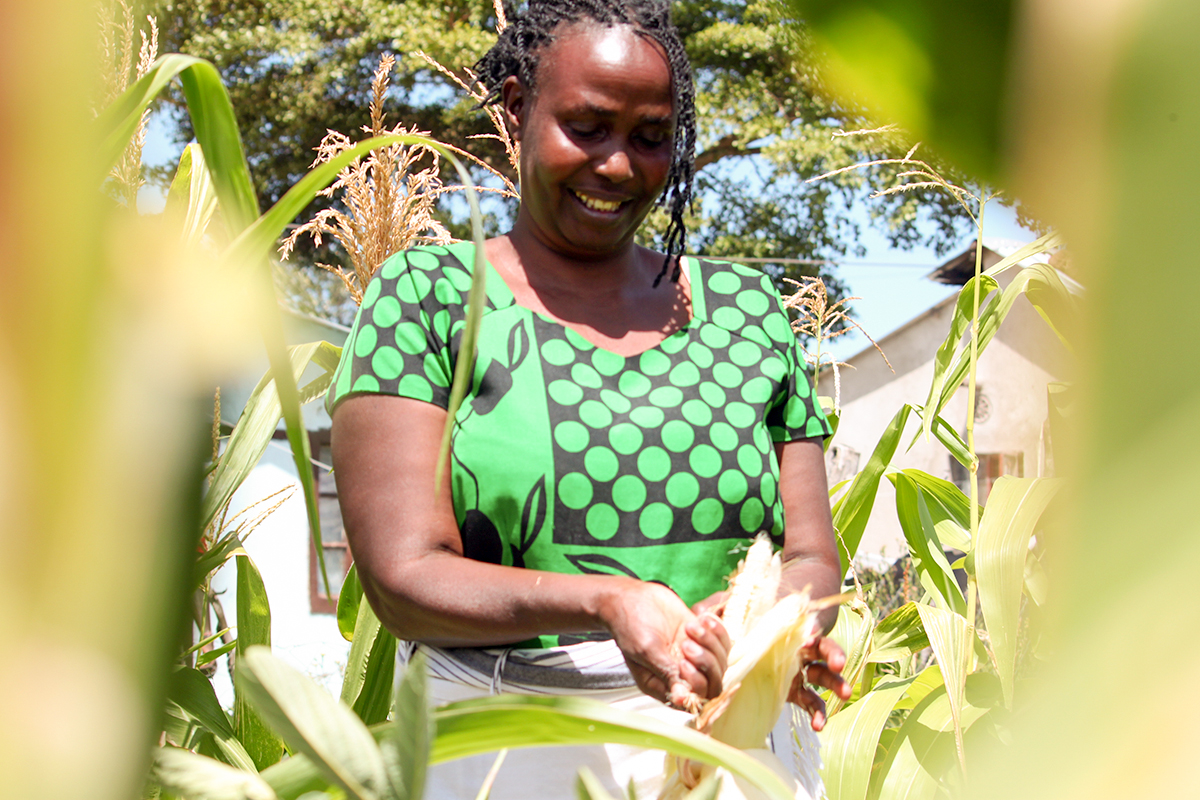
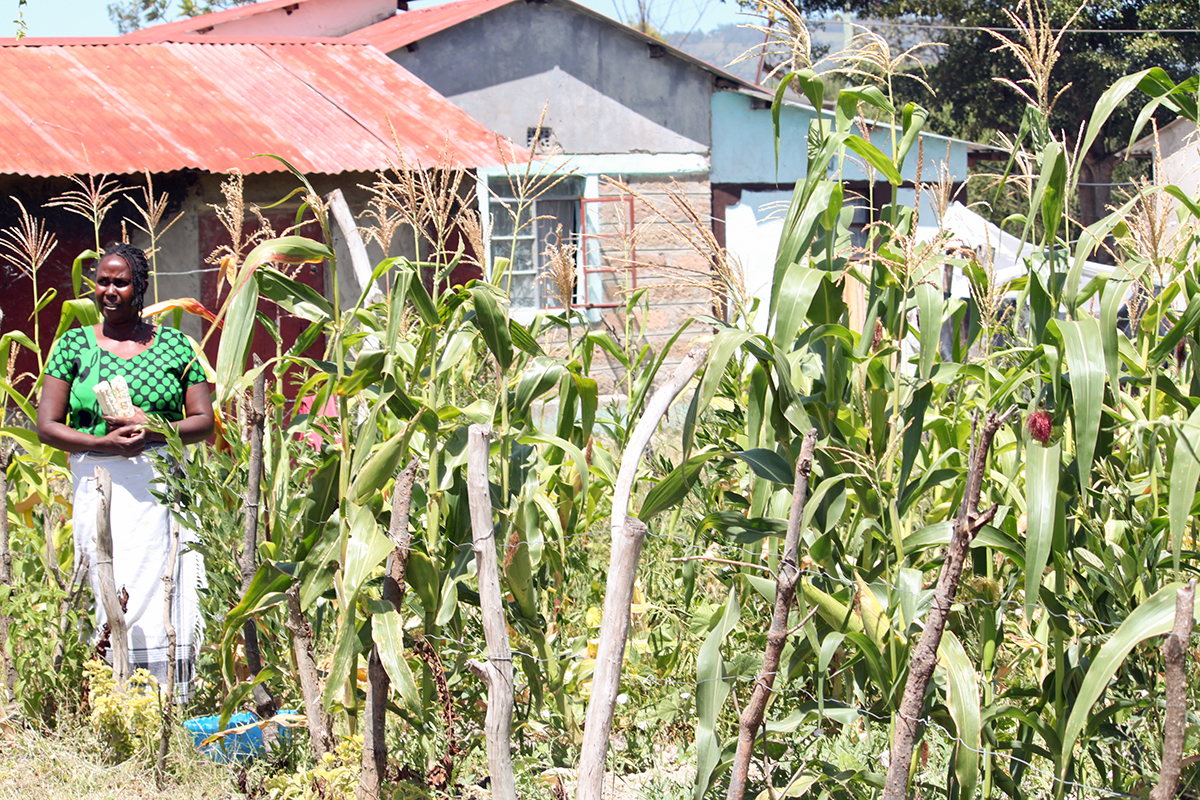
Photo 1: Mirriam, mother of sponsored children Faith and Elisha, is a member of one of the successful SACCOs in Nariobi, Kenya. Mirriam was chair of her self-help mothers group (SMG) named “Daughters of Zion,” which established their successful community SACCO, and she is now on the management board of the SACCO.
Photo 2: Besides helping to run the SACCO, Mirriam has also benefited through savings and loans. She has used SACCO loans to add on to her house and to purchase equipment for her produce farm. Her dream is to eventually qualify for a “supa loan,” which she will then use to build six residential houses on her adjacent property to rent out to students at the nearby university.
A COOPERATIVE FOR THE BENEFIT OF ALL
Planning for Yapak CC began in 2018 with the cooperative chair Francisca, a former Unbound sponsored mother, and the other mothers gathering all the knowledge they could about bringing a credit cooperative to their community.
They worked closely with Unbound Quezon program staff, attending seminars, trainings and gaining exposure to other successful subproject cooperatives, both in person and through social media group chats, and seeking advice from the cooperative compliance unit of their local government.
At one point, they traveled six hours to and from other Unbound Philippines subprojects, spending a total of three days on-site with other mothers groups who founded cooperatives in their own communities. The advice they received from the mothers groups was a testament that they were headed in the right direction.
“A cooperative is a structure toward economic sustainability, they told us,” Francisca said. “A vibrant cooperative helps mothers have access to loans for livelihood capital and in times of emergency needs.”
To be successful, they would need to “be at their best,” forming the cooperative with the right attitude of honesty, transparency, hard work and patience.
But the Yapak CC mothers group would find their patience tested in ways they could not have foreseen.
They submitted their registration paperwork with the Cooperative Development Authority (CDA) in 2019, but not long after that the pandemic arrived, delaying the process. Not to be discouraged by the slow response from the CDA, the group moved forward, creating their by-laws and other requirements, and situating their office in the upstairs space of Francisca’s sister Rosalina’s home on IBP Road. In early 2022, the group finally received word from the CDA that Yapak CC was officially a registered credit cooperative.
“All the worries and fears in our minds have all gone after the release of the certificate of registration,” Francisca said. “We are very happy our hard work to start this cooperative has paid off.”
Unbound Quezon Program Coordinator Susan Espiritu said she witnessed personally how the pandemic tested the group’s unity and patience to realize their goal. “However, I have seen how they stand strong and persevere in the face of their difficulties,” she said. “They stayed focused on their goal, continued to process their documents and delegate tasks to different cooperators. They did not lose hope … which shows how truly united and patient they are.”
The next step in the process was to register Yapak CC with the Bureau of Internal Revenue, according to Francisca, but with more than 20 members already, the cooperative was ready to accept loan requests. To become a member, individuals complete the application form, pay the registration fee of 300 pesos ($6 USD) and have at least 4,000 pesos ($80 USD) of shared capital to deposit.
Amelia, mother of sponsored children John and James, holds the title of cooperative collector and will work closely with members on their payments.
“Through trainings, seminars and exposures, we are already knowledgeable on how to deal with situations where we have to make good conversations even if there are conflicts,” she said. “We are really aiming for the success of this cooperative. I hope that we continue to grow and make more income for all the members.”
Currently, Yapak CC staff are in the process of inviting and encouraging more members to participate in the cooperative, which will help them to be able to approve higher loans. The biggest challenge they face, according to Francisca, is convincing potential members of the benefits of a cooperative.
“We will not stop encouraging them,” Francisca said. “We are all owners of this cooperative. We are all responsible; we are all going to take good care of it, and we will all benefit from it, [as well as] our community at large. Do not fear to fail, because failure is always a beginning.”
The community, Francisca concluded, will work toward the success of their cooperative — together.
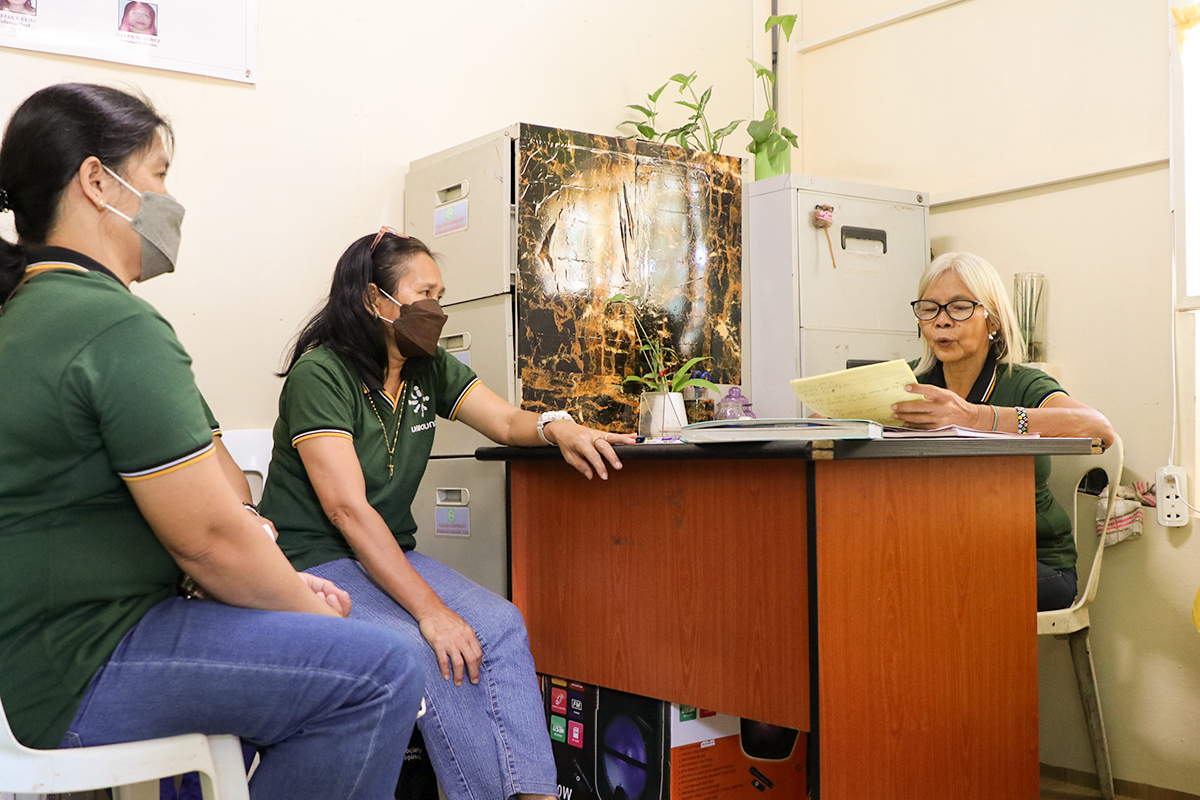
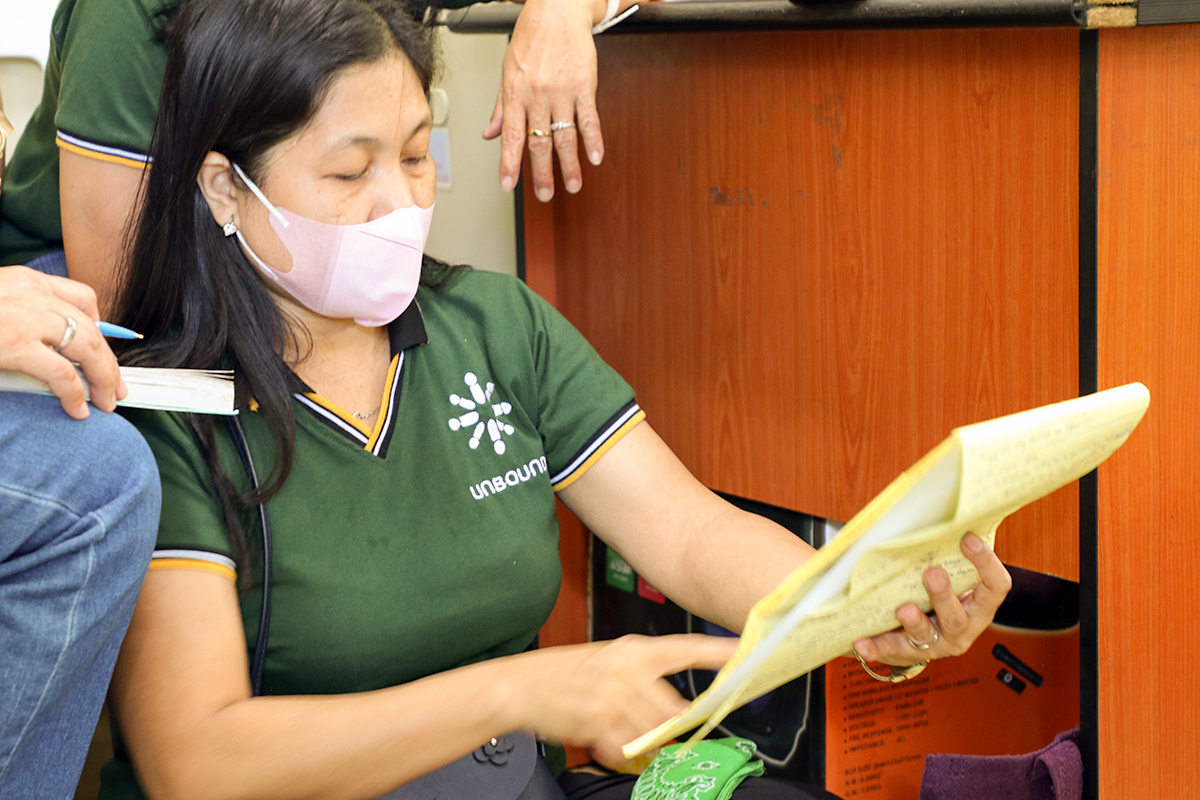

Photo 1: Pictured left to right, mothers group and cooperative members, Analyn, Angelina and Francisca, conducting a meeting at Yapak CC on the cooperative rules, regulations and necessary forms. In March, the group invited a priest to Yapak CC to bless the office ahead of opening to accept loan requests.
Photo 2: Amelia, mother of sponsored children John and James, and the cooperative’s collector, goes over details of the cooperative’s registration with other members of the mothers group in the Yapak CC office.
Photo 3: Cooperative chairwoman Francisca holds up the cooperative’s certificate of registration, a necessary form for their business operation that was made more difficult to obtain because of the pandemic.
We are all owners of this cooperative. We are all responsible, we are all going to take good care of it, and we will all benefit from it, [along with] our community at large.
— Francisca, Chairwoman of Yapak Credit Cooperative, Quezon program
Read part 2 of the Built on Unity series: “Unbound communities in the Philippines thrive after taking collective action to establish cooperatives.”










